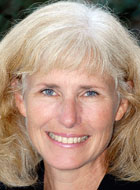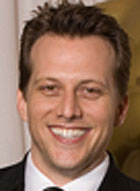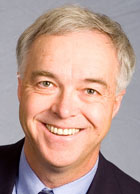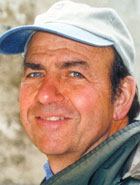It’s a busy, event-filled week for the Assembly Series, as four nationally-renowned speakers — a noted plant biologist, an Academy Award-winning filmmaker, an editor of a national newspaper and an acclaimed humorist — all will speak on campus.
The importance of plant biodiversity
The critical role played by flowering plants may not be obvious, but they hold clues to the evolutionary history of our planet; provide sources of food, medicine and shelter to humans; and serve as food and habitat for many other organisms. Pamela Soltis, Ph.D., a distinguished scholar in angiosperms (flowering plants), will discuss the importance of “Conservation Genetics and the Preservation of Plant Biodiversity” for an Assembly Series program 2 p.m. Friday, March 28, in Steinberg Hall.

Soltis will be on campus as a Phi Beta Kappa Visiting Scholar, sponsored by the Department of Biology in Arts & Sciences. Co-sponsors are the University chapters of Phi Beta Kappa and Sigma Xi honoraries. The talk is free and open to the public.
Soltis is curator of the Laboratory of Molecular Systematics and Evolutionary Genetics at the Florida Museum of Natural History at the University of Florida. She also is instrumental in reconstructing the plant branch of the Tree of Life Web project. This collaborative effort of biologists from around the world provides information about the diversity of organisms on Earth, their evolutionary history and character-istics.
Active in her profession, Soltis is the president of the Botanical Society of America and the former president of the Society of Systematic Biologists.
She has served on the councils of the Society for the Study of Evolution, the American Society of Plant Taxonomists and the American Genetics Association. Among her honors are the Centennial Award from the Botanical Society, a Mellon Faculty Fellowship, a Fulbright Distinguished Professor Award and a Research Professorship from the University of Florida Research Foundation.
Soltis earned a bachelor’s degree from Central College and master’s and doctoral degrees from the University of Kansas.
The Palestinian-Israeli conflict as musical comedy
“West Bank Story” is a little film about a big subject, uses music and comedy to deliver a serious message, and was created by a young man wise beyond his years.
That person, Ari Sandel, will show his Oscar-winning film short and discuss how he came to make it at 4 p.m. Tuesday, April 1, in the Lab Sciences Auditorium. It is free and open to the public.

Sandel’s program is sponsored by the Rabbi Ferdinand Isserman Fund and Students for a Peaceful Palestinian-Israeli Future. The Isserman Lecture was established to honor the life and work of the late Rabbi Isserman, who devoted his life to nurturing interfaith relationships.
Sandel is a director, writer and producer for film, television and music videos. “West Bank Story,” which won an Academy Award in 2007 for Best Live Action Short Film, is a humorous and hopeful look at the Israeli-Palestinian conflict. The story, modeled as a musical parody of “West Side Story,” involves two families — one Israeli and one Palestinian — who have competing falafel stands in the West Bank. At the heart of the story is a star-crossed love affair between an Israeli soldier and a Palestinian woman, and it even features a camel named Stormy.
Sandel premiered “West Bank Story” at the Sundance Film Festival in 2005, and it has since been screened in more than 115 film festivals worldwide. It has won 26 festival awards. His most recent film is “Vince Vaughn’s Wild West Comedy Show: 30 Days & 30 Nights — Hollywood in the Heartland.”
Sandel earned a master’s in directing from the University of Southern California’s School of Cinema-Television.
Rebooting America: news for a new generation
Ken Paulson, J.D., editor and senior vice president of news for USA Today and usatoday.com, will discuss the role of the newspaper in today’s Internet-savvy society at 4 p.m. Wednesday, April 2, in Graham Chapel.

Before joining USA Today in 2004, Paulson was executive director of the First Amendment Center at Vanderbilt University. There, he drew on his background as a journalist and lawyer to promote a greater understanding of the First Amendment. His syndicated column, “Inside the First Amendment,” appeared in newspapers nationwide. Paulson also hosted “Speaking Freely,” a weekly half-hour television program about the First Amendment and the arts.
As reporter and editor with Gannett Newspapers for 18 years, Paulson served as executive editor of the Suburban Newspapers in Westchester County, N.Y. He also served as the executive editor of Florida Today and editor of the Green Bay Press-Gazette in Wisconsin. The Society of Professional Journalists named him a Fellow in 2007.
Paulson earned a bachelor’s degree in journalism from the University of Missouri in 1975. Following his studies at Mizzou, he attended the University of Illinois at Urbana-Champaign, where he earned a law degree and specialized in first amendment law. While in school, he kept his journalism skills honed by working on the Daily Illini. Paulson is a member of both the Illinois and Florida bars.
Spend an ‘Afternoon with Calvin Trillin’
Calvin Trillin, the versatile veteran writer, journalist and humorist, will appear at 4 p.m. April 3 in Steinberg Auditorium. His talk is the keynote address for the upcoming symposium “Consuming News: Newspapers & Print Culture in Early Modern Europe (1500-1800),” sponsored by the German department in Arts & Sciences and Delta Phi Alpha, the German student honorary.

Trillin has been writing for more than four decades, beginning in the 1960s for Time magazine. Since then, his work has appeared in The New Yorker, The Nation and in more than 20 books ranging from fiction to nonfiction to essays to comic verse.
His long association with The Nation began with a column called “Variations,” moved on to “Uncivil Liberties,” and continues today with his weekly “Deadline Poet” column, featuring current events in rhythm.
His first book, “An Education in Georgia: Charlayne Hunter, Hamilton Holmes, and the Integration of the University of Georgia,” about the racial integration of the University of Georgia, was published in 1964.
Since then, Trillin’s books have covered a range of subjects, among them his life and family (“Messages From My Father,” “About Alice” and “Travels with Alice”); the culinary arts (“Third Helpings” and “American Fried: Adventures of a Happy Eater”); and political satire (“Uncivil Liberties,” “Obliviously On He Sails: The Bush Administration in Rhyme” and “A Heckuva Job: More of the Bush Administration in Rhyme”). His three novels, also satirical, are “Runestruck,” “Floater” and “Tepper Isn’t Going Out.”
Trillin wrote for the Yale Daily News before earning a bachelor’s degree from Yale University in 1957. He also served in the U.S. Army.
For more information on this or any all the Assembly Series lectures, visit the Web page at assemblyseries.wustl.edu or call 935-4620.